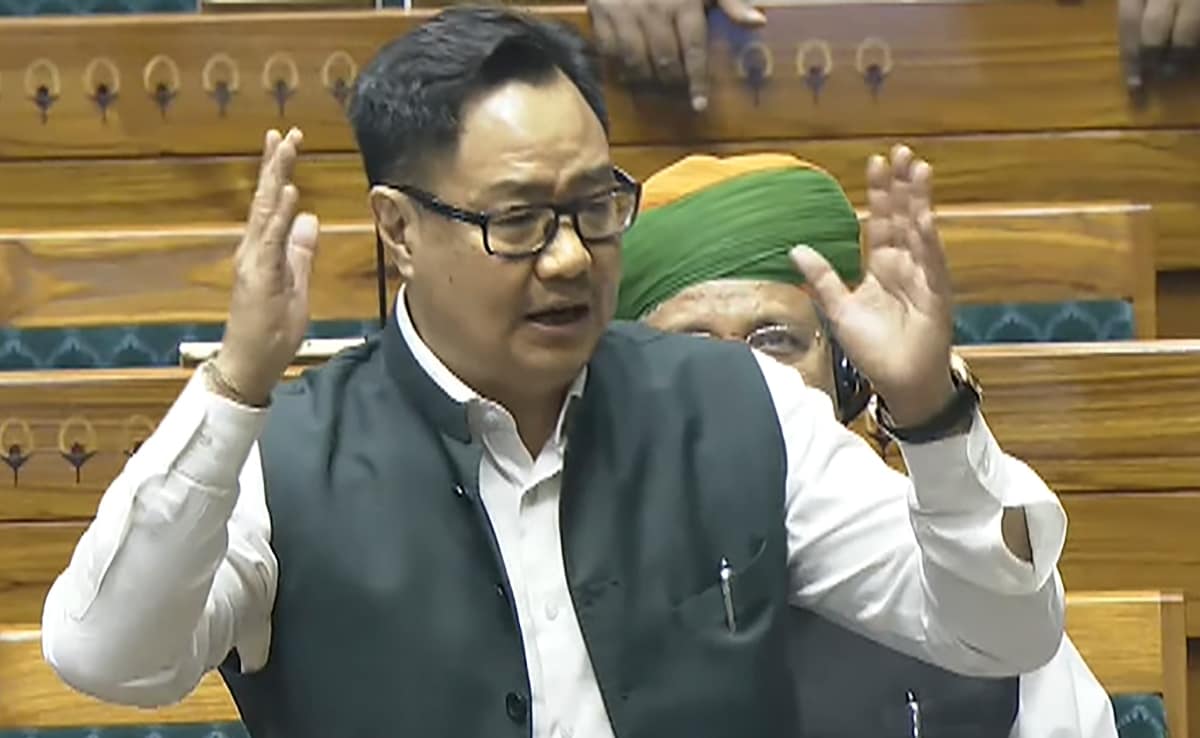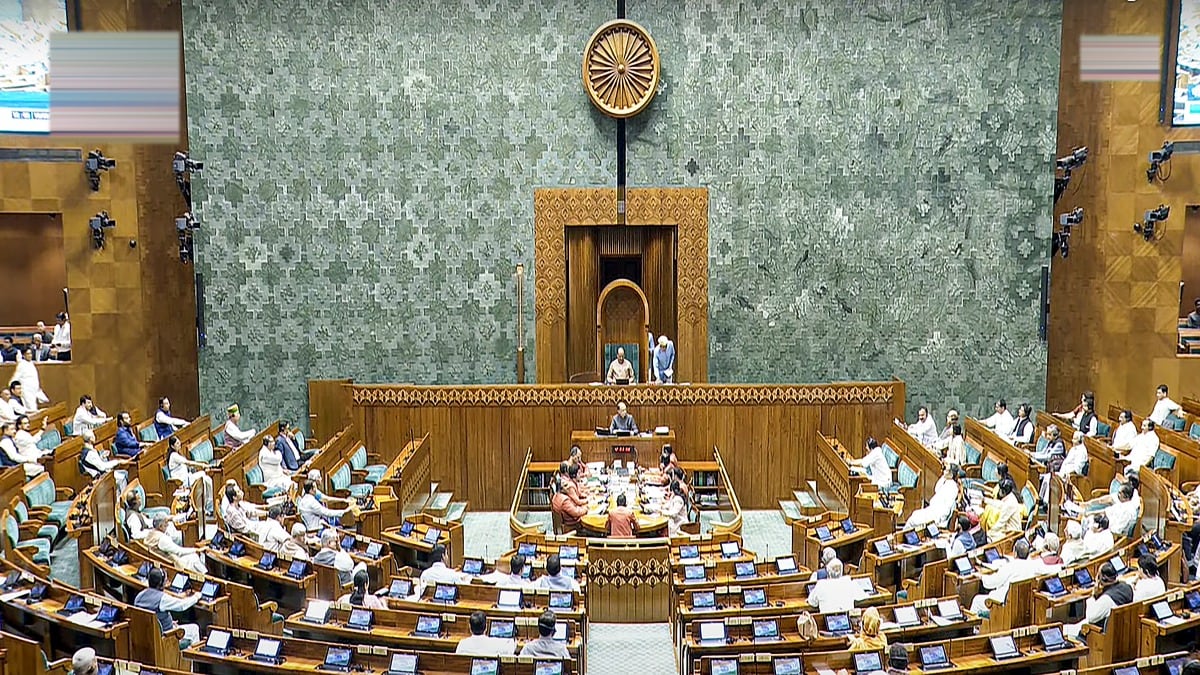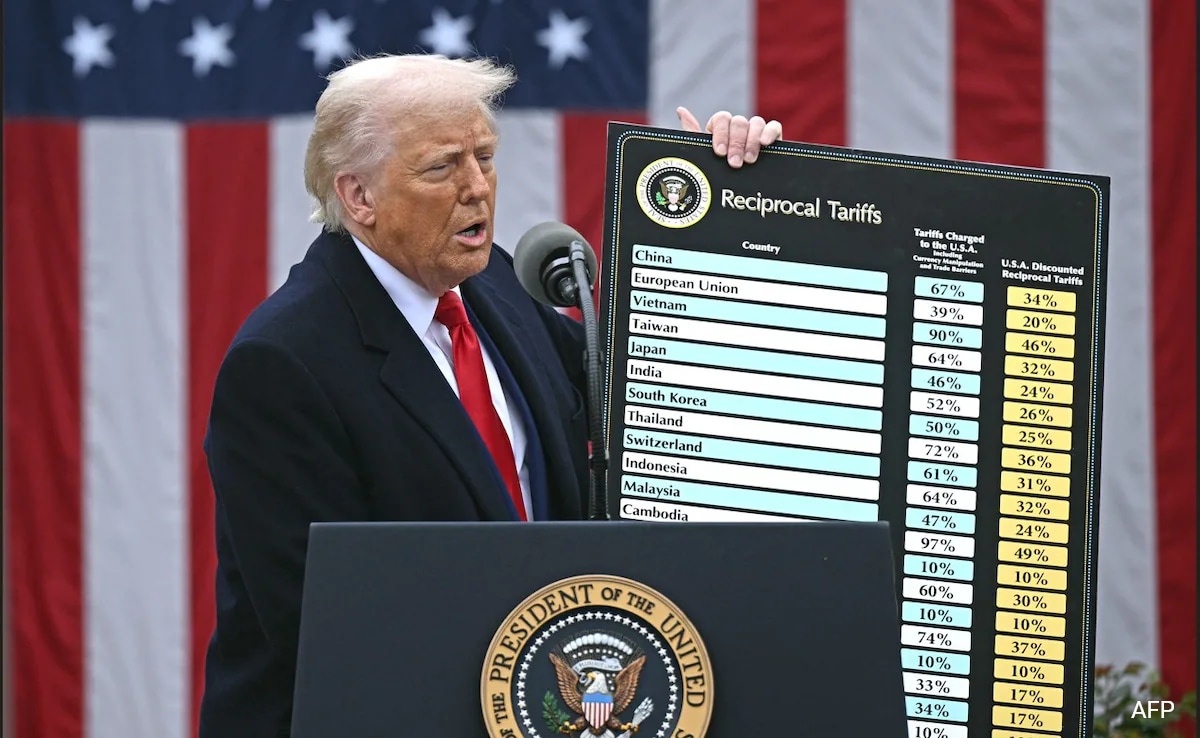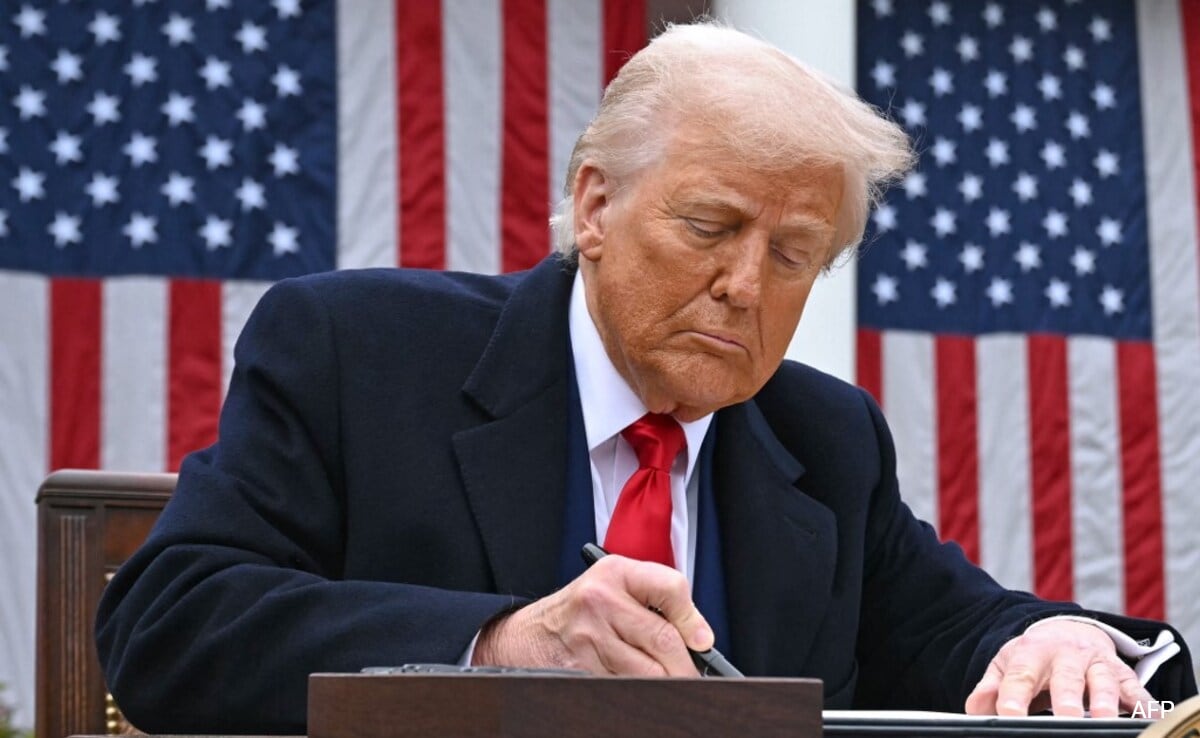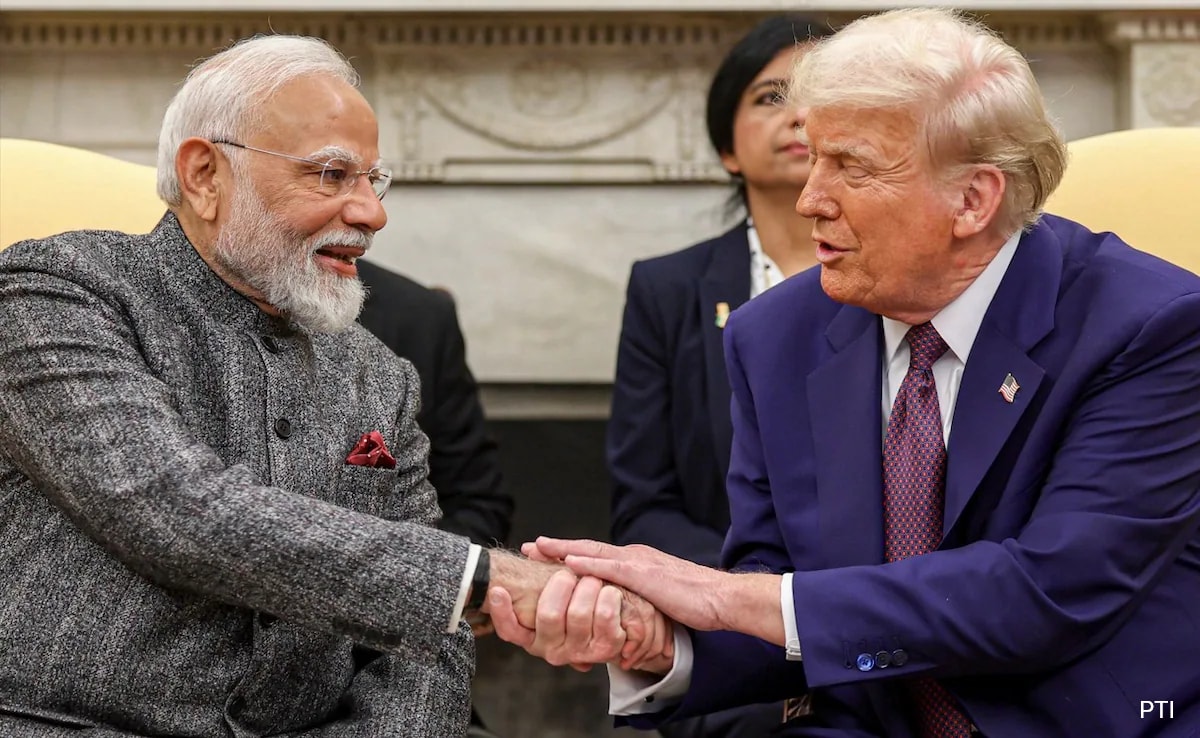The promised eight-hour debate on the Waqf Amendment Bill – which proposes changes to laws that decide how Muslim charitable properties are administered – began Wednesday afternoon with Minority Affairs Minister Kiren Rijiju and the opposition trading jabs after the bill was tabled in the Lok Sabha.
Mr Rijiju began with jabs at the Congress, claiming the party had made “questionable” changes to Waqf laws when in power, including the denotification of “123 major buildings… given to the Waqf”. The Congress-led UPA government, he said, would have given the Parliament to the Waqf if not stopped.
His introductory speech was rebutted by the Congress’ Gaurav Gogoi, who first accused Mr Rijiju of making “misleading statements” and labelled the Waqf amendments “an assault on the Constitution”. Click Here For Parliament Live Updates
Mr Gogoi also asked why the Minority Affairs Ministry did not mention this bill in any of the four meetings of its parliamentary committee in 2023, a year before the amendments were presented.
Kiren Rijiju Sets Ball Rolling
“A case going on since 1970 in Delhi involved several properties, including the Parliament building. The Delhi Waqf Board had claimed these… the case was in court but then the UPA denotified 123 properties and gave them to the Waqf Board,” the Union Minister said on the ‘Parliament to Waqf’ charge.
#WATCH | After introducing the Waqf Amendment Bill in Lok Sabha, Parliamentary Affairs Minister Kiren Rijiju says “In 2013, right before Lok Sabha elections in 2014, there were some steps taken which will raise questions in your mind. In 2013, the act was changed to allow Sikhs,… pic.twitter.com/6LSe1Wg53D
— ANI (@ANI) April 2, 2025
“If we had not introduced this amendment today, even the building we are sitting in could have been claimed as Waqf property. If Prime Minister Narendra Modi’s government did not come to power… several other properties would also have been de-notified,” the Union Minister said.
“Property Management Issue…”
Mr Rijiju then criticised the opposition for standing against changes, insisting there will be no alterations to the management of mosques and that the amendments were “a property management issue”.
“The government has nothing to do with religious sentiments,” he said, pointing out, “The role of Waqf boards is to supervise management of Waqf properties… this (the proposed law) is purely a provision for governance and supervision. It is simply a matter of property management.”
“If someone fails to understand this basic distinction… or chooses not to… I have no answer.”
#WATCH | After introducing the Waqf Amendment Bill in Lok Sabha, Parliamentary Affairs Minister Kiren Rijiju says “The provisions of the Waqf Board have nothing to do with the management of any mosque, temple, or religious site. It is simply a matter of property management.… pic.twitter.com/ChEqLgUz8g
— ANI (@ANI) April 2, 2025
Mr Rijiju also pointed out the government had removed a “draconian provision” in the existing Waqf laws – a provision, he said, that allowed “any land to be declared as Waqf property”.
“… previously any land could be declared as Waqf property. But we have removed that provision. This provision was misused to such an extent the number of properties increased to lakhs,” he claimed.
To emphasise his point, Mr Rijiju said temples and gurdwaras had been claimed as Waqf land despite no records of mosques in those areas. “Surendereshwar Temple in Tamil Nadu was declared Waqf… in Karnataka, thousands of acres of land… in Haryana, a Sikh gurudwara was also declared Waqf…”
“Waqf boards control the third largest pool of properties in the country, after the Railways and Defence, but those belong to the nation. Waqf properties are private…” he said, stressing also the proposed changes to the law would not be retrospective, as some opposition MPs had warned they would be.
“The opposition should, therefore, not spread misinformation,” he continued, slamming the Congress and other parties for trying to politicise the issue. “Appeasement does not lead to votes,” he warned.
That charge is significant, given that changes to the Waqf laws comes as Bihar – where the Muslim population is around 17 per cent – votes in an Assembly election later this year.
“We have come with a very clear brief… we want the Waqf to be secular, inclusive,” Mr Rijiju said, outlining several of the proposed changes, including a contentious rule requiring two-non Muslims to be part of each state Waqf Board and the central Waqf Council.
The Minority Affairs Minister also questioned the lack of female representation on these boards, declaring the government had written in provisions to guarantee at least two women members.
Gogoi, Opposition’s Rebuttal
In his rebuttal, Congress MP Gogoi referred to a new provision that says donations to Waqf boards can only be made by Muslims who have been practicing for at least five years.
“Problematic clauses are in the Waqf Amendment Bill… it is sad that the government is now giving ‘religious certificates’. Will they seek statements from other religions also? What kind of justice is this?”
READ | “Dilute, Defame, Divide, Disenfranchise”: Congress’ ‘4D’ Attack On Waqf Bill
Mr Gogoi then accused the BJP-led government of trying to defame minority communities.
Opposition Complains, Amit Shah Replies
Mr Rijiju’s fierce speech was preceded by a brief ruckus as NK Ramachandran of the Revolutionary Socialist Party rose to present a point of order. He questioned the authority of the joint parliamentary committee – which had been tasked last year with reviewing the original Bill – to make changes.
Mr Ramachandran said that, by his interpretation of the rules, the JPC should not have introduced changes to the bill, as it had not been expressly authorised to do so by the House.
READ | “Centre Won’t Interfere In Religious Institutions”: Who Said What On Waqf
He was referring to the 14 changes (all suggested by MPs from the ruling BJP or allied parties, another point of contention with the opposition) that had been made by the committee.
These changes were cleared by the Union Cabinet in February.
Union Home Minister Amit Shah rose for a brief rebuttal.
Mr Shah said the committee – led by the BJP’s Jagadambika Pal – had offered suggestions that were then accepted by the union government and not the committee itself.
Waqf Amendment Bill Timeline
The Waqf Amendment Bill was first tabled in the Lok Sabha in August last year amid furious protests from the opposition, which slammed the proposed law as “draconian”. A day later it was sent to the committee, which filed its report in February after opposition MPs said their views had been ignored.
READ | Opposition MPs In Waqf House Panel Say Their Suggestions Ignored
The BJP refuted that claims; panel member and Lok Sabha MP Aparajita Sarangi said Mr Pal “tried to hear everybody out and gave sufficient time for everybody to move amendments…”
The JPC held nearly three dozen hearings in six months but many of those ended in chaos, and at least one in physical violence after Trinamool MP Kalyan Banerjee smashed a glass bottle on the table.
Eventually 66 changes were proposed, of which all 44 from the opposition were rejected while the 23 from BJP and allied parties were accepted. After a vote 14 of the 23 were cleared.
READ | Cabinet OKs 14 Waqf Bill Changes By House Panel Amid Row Over ‘Bias’
The removal of an annexure with dissent notes from the opposition triggered another row. The centre said the Chair had the discretion but, after talks, said the notes would be included.
The original draft of the Waqf Amendment Bill had proposed 44 changes.
NDTV Explains | Rules On 2 Non-Muslim Members Among 14 Waqf Changes
These included nominating non-Muslim and (at least two) women members to each Waqf board, as well as a Union Minister, three MPs and persons of ‘national repute’. There was also a proposal to limit donations from Muslims practicing their religion for at least five years.
With input from agencies
NDTV is now available on WhatsApp channels. Click on the link to get all the latest updates from NDTV on your chat.
